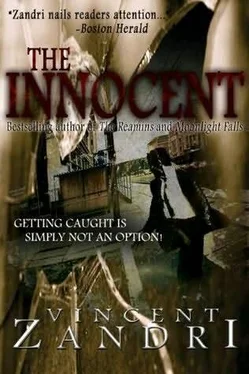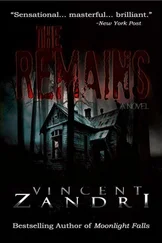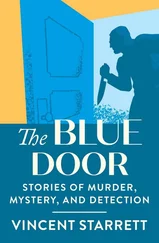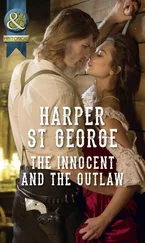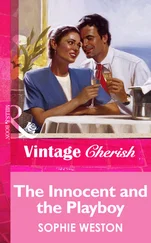The two inmates who support Mike Norman lay him down into a shallow pool of water that has collected inside a depression on the concrete catwalk. The white inmate who has forced the blunt barrel of the black-plated service revolver into Wash Pelton’s mouth pulls back the hammer, closes his eyes, faces away…
I WOKE UP TO the sound of footsteps on the roof. I didn’t know quite where I was until I focused my eyes on the half-light that leaked in from the fire in the great room. I wasn’t sure if I had truly heard footsteps on the roof or if it had been my imagination, the result of a dream, the recollection of which had disappeared as fast as it had come.
I felt for my gun.
Then I looked at my watch and realized I had only been out for an hour. But it felt like ten hours of drugged sleep. Taking a deep breath, I got out of bed and made it to the bathroom with eyelids at half-mast. You might say I was operating on instinct, on a physical knowledge of the cabin interior that had not left my body in more than three decades.
At the sink, I threw cold water on my face and took a good look in the mirror. I gazed at the heavy brown eyes, at the three-day-old growth, and at the thick black hair cut close to the scalp. I felt more than tired, more than exhausted, as if my body had waited until this very moment to feel everything it was supposed to feel since the trouble had begun on Monday afternoon when Vasquez bolted from the iron house.
Despite the persistent chill in the cabin (even this late in May), I took off my shirt and gazed at the washboard ripple of my stomach muscles and the way my chest heaved, defined and elastic, when I took deep breaths. Maybe all the running and weight training had kept me in some kind of shape, but I also knew that the cigarettes were getting to me, making my lungs ache, killing me. Although the real pain would take its own sweet time.
But something else was also taking its own sweet time.
Since Fran had died, I hadn’t slept well, or eaten well, or been without a bottle of Scotch or Jamesons close by. Since Fran had died, grief alone had made me drop eighteen pounds in twelve months. At that rate I’d be down to eighty pounds in five years. A frightening prospect. Standing at the sink, with the hot and cold water running down against the white porcelain bowl, and staring at my pale face in the mirror, I knew it was time to begin living again. The trick was learning to live without the grief and without the guilt. The trick was to create a life worth living, a life no longer conscious of death.
I made a cup with my hands, filled it with cold water, splashed it over my face and chest. I felt unbearably cold until I dried my face with the towel and hung it back on the rack behind the door. It was only after I looked up again that I saw his face in the mirror. With the water running, I hadn’t heard him slip out from behind the plastic shower curtain. He was dressed in a full-length wool overcoat and he held a bowie knife the size of my leg up against my Adam’s apple.
“Don’t make a sound,” the overcoat man said, covering my mouth with his free hand.
How could I make a sound?
His hand smelled like sweat. I felt dizzy, weak. The footsteps I’d heard on the roof were his. I hadn’t dreamt them after all. The footsteps were real.
The water was still going steady, from both spigots, swirling down the drain of the sink. He took his hand away from my mouth slowly. At the same time, he pressed the blade tighter against my throat so that it was an effort just attempting a swallow.
“Now,” he said, voice smooth and evenly toned, like a pro, “we’re going to take a walk.”
“Who sent you?” I said.
He rapped me on the side of the head with the blade. The rap stung, but I knew the damage was nil.
“No talking,” he ordered.
I raised my hands in surrender.
“Turn off the water. Use your right hand, nice and easy.”
I lowered my hand and brought it to the cold-water faucet. I twisted, clockwise, all the time wracking my brain for a way out of this, searching the immediate area for a knife, a comb, a razor blade, anything that would give me a semblance of a chance.
“Come on,” he whispered. “The next one.”
I put my hand on the hot water faucet and hesitated.
“Now,” he insisted. “Do it.”
The hot water steamed up onto my bare chest and face. I could feel the sting of it as it splattered into the white porcelain sink. I began to turn the knob. But instead of turning it counterclockwise, I slowly turned it clockwise, opening up the valve, the hot water pouring out faster and heavier and hotter.
“No,” he said, still using that evenly toned whisper, but somehow more urgent now. “The other way. Left is Lucy. Right is tight.”
And that was when he fell for it. He reached out to the faucet with his free hand. But I grabbed his wrist and held his hand down under the scalding water and went for the knife. The overcoat man screamed and yanked back hard. He stumbled backward a few steps and I brought my fingers to my throat to see if he’d cut me. When he raised the knife to drive it into my chest, I looked closely at the blade to see if it was streaked with red. But before I had a chance to see, his body crumpled and collapsed.
Without thinking, I went down for the knife.
Standing over me was Cassandra.
She had buried the kindling-wood hatchet smack into the back of his head. He never knew what hit him.
I dropped the knife to the floor and got back up on my feet. For a second or two, Cassandra and I stood there stunned, looking at one another with blank faces, breathing hard but steady.
Then I went down on my knees again.
“Grab a towel,” I said.
She did it.
I held the towel in one hand and jerked the hatchet out of the skull with the other. Blood came gushing out along with the blade. I pressed the towel up against the wound and got a good look at his face. His eyelids were blinking and his mouth was opening and closing, but no sound was coming out and I was fairly certain that his life had left his body before his nervous system had had a chance to register it.
I laid him down on the floor, the weight of his head pressed against the now blood-soaked towel.
“Oh God,” Cassandra said, bringing her hands to her face, turning her head. “Oh my sweet Lord.”
I had no way of telling if her reaction was the result of what she had done or of recognizing whom she had done it to, or both.
I felt the jugular for a pulse.
Nothing.
I brought my ear to his mouth, listened for breathing.
Nothing.
I shook him hard.
“Who sent you?!” I shouted. But it was all useless.
All I could get out of him was a death rattle and even that stopped after a few seconds. He was gone and I knew it.
I pressed his head back down onto the towel and looked up at Cassandra.
“You recognize him?” I said.
She had her back to me.
“I’m talking to you!” I snapped.
“No,” she said.
“You’re lying,” I said, bounding up.
She said nothing. I grabbed her shoulders, turned her around. She was crying.
“Who the hell was he?” I said. “You saw his face and you recognized him. Who was he?”
“I don’t know!” she screamed. “I’m telling the God’s honest truth. Please…” Her voice just trailed off.
I let go of her, took a deep breath, and glanced back down at the dead man. The bath towel was saturated now and there was a small puddle of blood on the floor behind his head.
“How am I supposed to know if you’re telling the truth?”
Cassandra gritted her teeth, gazed at me wide-eyed.
“Because I just saved your ass,” she said, with a voice that made the hairs on the back of my neck stand up stiffer than the overcoat man’s dead body. Tearing the plastic shower curtain off the metal rings, she draped it over the body.
Читать дальше
